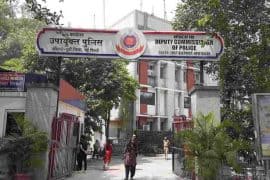Be it getting denied the status of citizens in Athens – the cradle of Democracy, to historically being deprived of power, being subject to oppression, to getting the right to vote for the first time only in 1920, to being excluded from positions of leaderships – both in public and private sphere since times immemorial till today, women have historically been denied equal rights and opportunities.
The global share of women in parliaments has jumped from a sad 18% figure in 2008 to 26.5% as of Jan 2023 – this presents a sorry, painstakingly slow picture of progress towards gender equality. According to a UN Women report, at the current rate, gender equality in the positions of leadership and power will not be reached for another 130 years. This implies that we are headed towards another 130 years of underrepresentation of experiences of 50% population, systematic prioritization of more ‘masculine’ aspects of national interest and a simultaneous setback to social facets of welfare, political campaigns being designed by men, pandering to men, drastic under-utilization of half of the human resource, continued ignorance of women’s capacity to peacefully resolve conflicts, promote peace and flagrant exploitation of women’s human rights in political spaces.
The biggest hindrance which prevents women from escalating higher up on the political ladder is the societal conditioning which constantly affirms and reaffirms that politics is not ‘feminine’ and requires one to have ‘masculine’ attributes of courage, resilience, shrewdness, competitiveness and dominance. ‘Power’, as a term has historically, always had masculine connotations, resulting in deeming Politics, a space of power play – ‘A Man’s domain’. It is high time we discard the gender-neutral approach to politics and start viewing it from a gendered vantage point, since the former denies the distinctive ways in which policies uniquely affect women and difference in the way women experience the full force of various political phenomena such as war.
Now with regards to answering the question of why bolstering women’s participation in politics is important – the first and very basic reason stems from the state’s obligation to promote equality under the social contract theory. Thus, morally and principally states are required to commit to actualizing the goal of an egalitarian society. Underdevelopment and weak democratic institutions in a country are a direct function of the status of women in that country. Be it the middle-east countries, instability stricken Afghanistan or the Sub-Saharan nations plagued with decades long spell of underdevelopment – constant oppression of women, their near invisibility in leadership positions are common to all these countries. Embracing inclusivity, plurality, diverse experiences of masses are the hallmarks of a successful democracy.
Women offer unique perspectives owing to their vulnerabilities in a largely patriarchal world and this further helps devising better policies for women and children, social development, sustainability and durable peace. According to studies from UN Women, when women were involved in peacebuilding – it was more likely to be sustainable for upto 2 years by 20% and for upto 15 years by 35%. Sanam Naraghi Anderlini in her book Women building peace highlights women’s special agency in mitigating the “call to arms.” Women are often among the first to publicly denounce the march to war. Anderlini provides diverse examples of this type of activism, including the Women for Peace that formed in Sri Lanka in October 1984 and the anti-war group Women in Black that, in October 1991, protested against the escalation of the war in the Balkans.
Women’s political leadership has shown greater prioritization of social indicators of development such as education, health, child care, mortality rate etc. At the local level of governance, female voter turnout and female political participation proportionally increases with presence of women in leadership positions. The Role Model effect of women breaking stereotypes, shattering the glass ceiling and claiming their space in the political domain closes the aspiration gap between girls and boys with regards to building successful political careers. But, this alone is not enough to generate a spontaneous surge in the number of females in political spaces. Systematic and deliberate policy initiatives are needed to be pursued consistently to change the global political landscape.
Proper utilization of reservation quotas for women, identifying and nipping instances of proxy governance by men through female relatives holding seats, promoting political literacy among women of all ages to create both – capable political workers and intelligent female voters. Campaigns and bootcamps can be organized by political organisations, think tanks and political parties to aid re-conditioning of women and to help them realize their political potential. Us women need to realize our potential as significant vote banks as well. Organizing women in voter blocs – something that seldom happens (thanks to cross cutting identities of caste, class, religion and polarization of electorates on communal basis), incentivizes it for the political players to raise women’s issues and make it a crucial part of their agenda and election campaigning. Having conversations with women in power, in the system and those with the valuable experience of working at the grassroot really helps develop a great sense of understanding of nuances associated with politics and policy spaces. Such community interactions spark conversations on issues like historic marginalization of women, harassment in working places – politics being one of them and the need to have greater representation for women in politics.
Image Credits: achonaonline.com
Rubani Sandhu





Comments are closed.